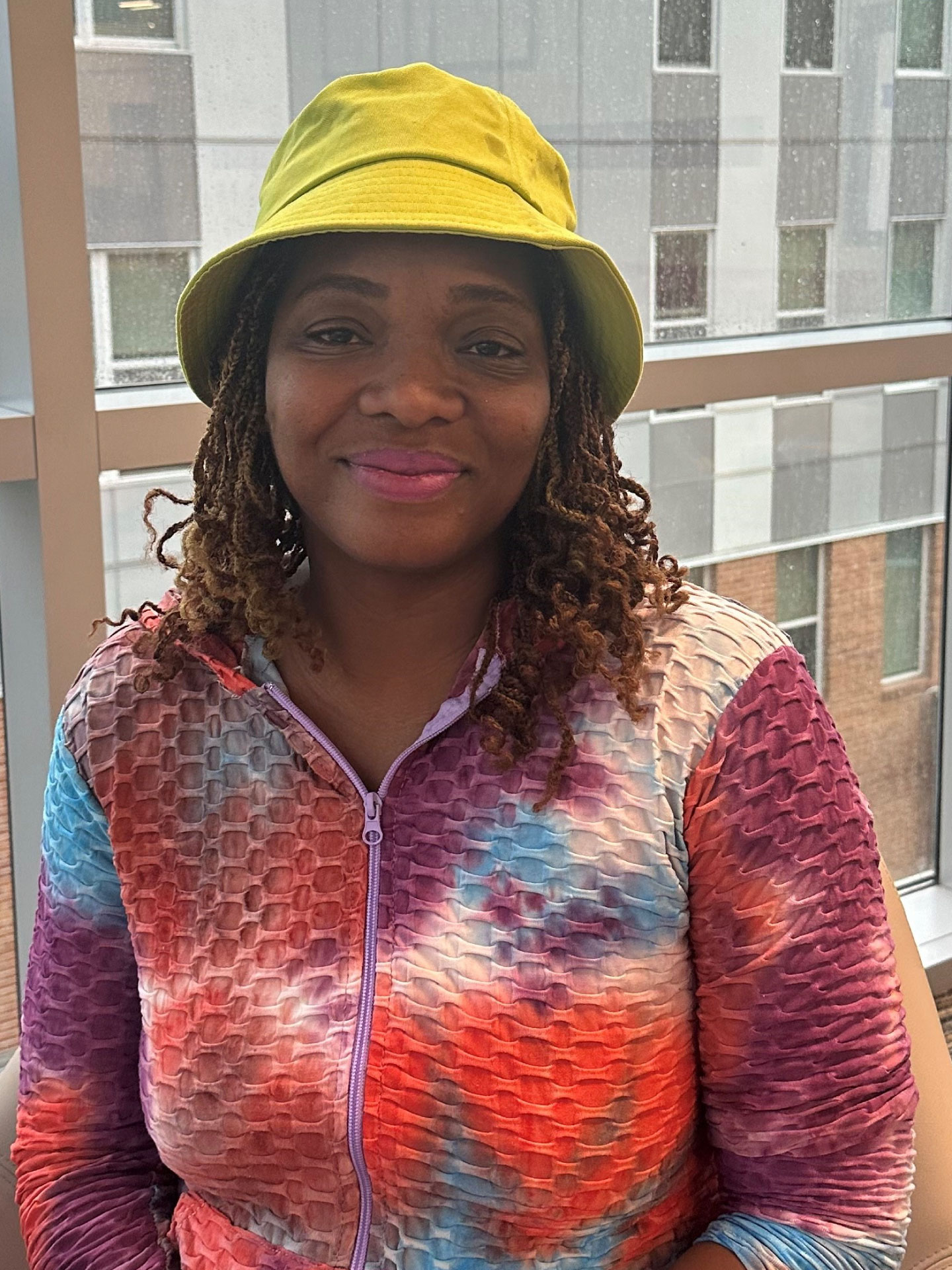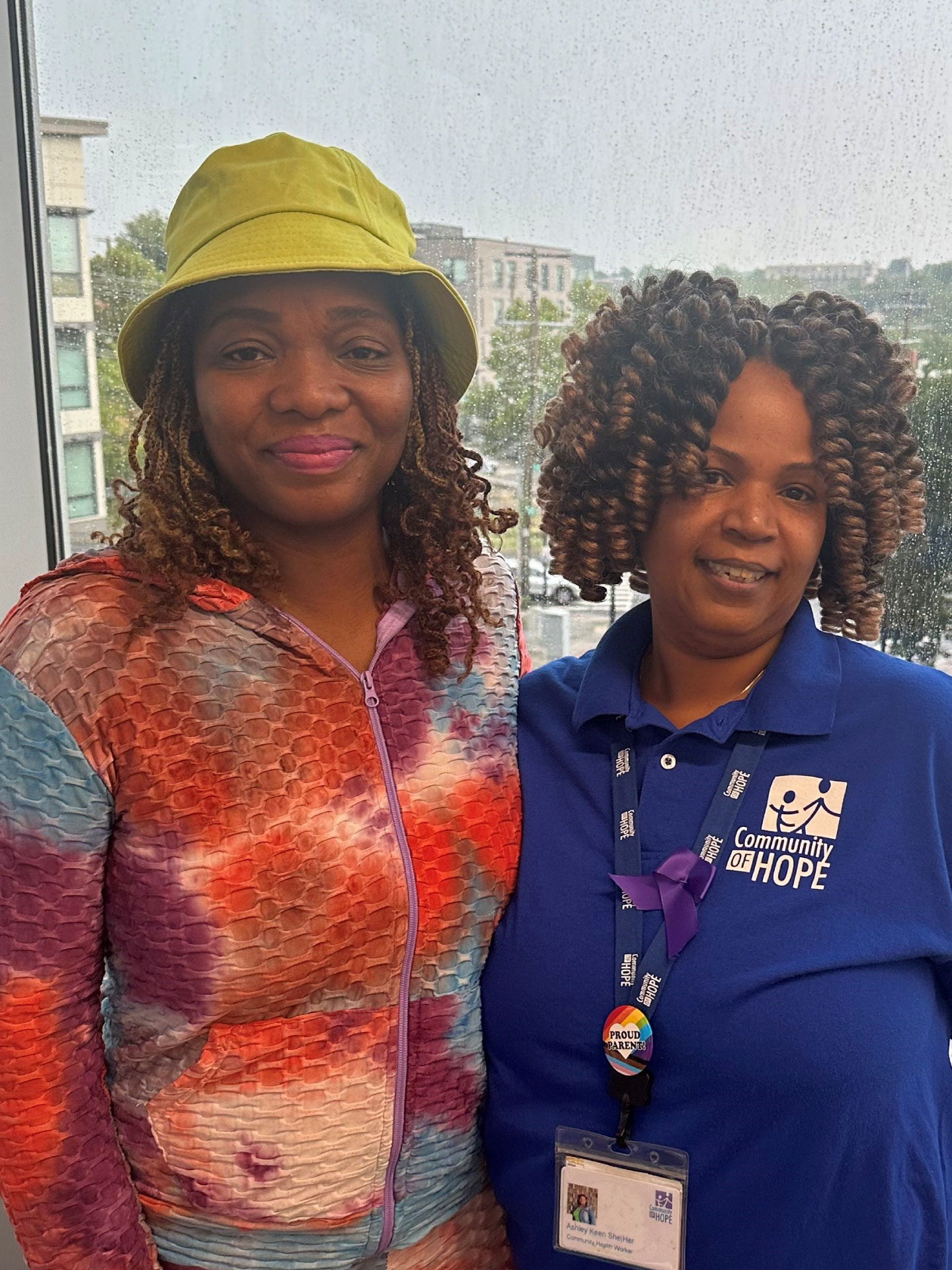A new three-year, $3 million grant partnership between the United Health Foundation and Community of Hope (COH) — a nonprofit that provides health care, housing and supportive services throughout Washington, D.C. — aims to help patients like Anita, who has a history of high blood pressure, and others with chronic conditions get the care they need, when they need it.
Chronic conditions

“Sometimes in Ward 8, we feel forgotten, but Community of Hope constantly reminds us they are here for us,” says Anita.
About Community of Hope
Community of Hope has been serving Washington, D.C. for nearly 45 years. As a federally qualified health center, Community of Hope provides health care services to more than 15,000 community members annually through its three community health centers that offer primary care and chronic disease management, prenatal and maternal care, emotional wellness services, pharmacy services, dental care and access to specialty care. Community of Hope provides housing services to families and individuals experiencing homelessness and also supports clients through a robust resource navigation and referral program to assist households struggling with food insecurity, housing instability, unemployment and other issues. Community of Hope’s largest health center and its resource navigation program are both located in Ward 8 — a historically underserved and under-resourced area of Washington, D.C.
Addressing health disparities
On average, Ward 8 residents live 15 years less
A community advocate
By funding an expansion of Community of Hope’s community health worker program, increasing care coordination and providing additional support for care transitions, the grant will enable COH to offer more support to a larger number of patients. Specifically, COH will:
- Improve health outcomes for patients with chronic conditions, such as diabetes, hypertension and asthma.
- Decrease preventable emergency room visits through better care coordination and patient engagement.
- Improve transitions of care for patients who have been hospitalized.
The chronic disease management program includes one-on-one engagement with community health workers; nutrition consultation and education; and increased clinical engagement and coordination.
Research
For patients like Anita, a patient of COH since it opened its Ward 8 location in 2014, the COH community health worker program has been a game changer.
“I see my community health worker once a week; we communicate often on the phone,” Anita says. “She’s always available for me to call her and always has answers for me. She also reminds me to set reminders on my phone to take medication. She listens and then we come up with a plan together. It’s been amazing.”
For Ashley Keen, Anita’s community health worker, the program allows her to support her community.
“The most rewarding part of being a community health worker for me is working with the residents of my community in Ward 7 and 8. I enjoy advocating, educating and supporting my community in making positive changes in their lives every day,” Ashley says.

Anita and Ashley
“For underserved patients with chronic conditions, access to culturally appropriate resources and care is crucial to improving health and well-being. The United Health Foundation’s partnership with Community of Hope means more people in the District of Columbia will have access to better care coordination and services they need to manage their health in ways that best meet their needs.”
Kathlyn W. | chief executive officer, UnitedHealthcare Community Plan of Maryland & D.C.
“Improving health outcomes for patients with complex health issues is a team effort. Thanks to our newest partner, the United Health Foundation, we can maintain and expand the team – including community health workers, nurses and nutritionists – in order to help patients thrive.”
Kelly Sweeney McShane | President and chief executive officer, Community of Hope
For patients like Anita, this partnership and the continued support she receives from Community of Hope makes all the difference.
“Having a community health worker has made a difference in helping me manage my chronic conditions because of all the suggestions and advice. You feel like you have a family. The whole team shows how much they care.”
Share This Story